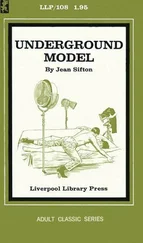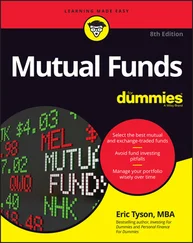“Thanks for that inspiring anecdote, Delio,” Ted said, responding to a tedious story about convincing some woman with a walker to buy a Complete Kitchen Set by throwing in a free spatula. No one mentioned that the spatula would come out of Delio’s commission. “And we should say, now’s as good a time as any, that Delio was our top team member this month, making thirty-six appointments and earning a whopping six thousand twenty-eight dollars in sales. Which means, because BladeCo likes to reward its high fliers, he gets automatically entered into the statewide raffle to win a free trip to Cancún! What do you say to that, team?”
“Awesome!” everyone shouted on cue.
“Just awe some ? Or awe- much ?”
“Awe-much!”
Warren had stooped to many things, including selling knives to crippled old ladies, but he could not bring himself to say “awe-much.” It was not a word he could say and look at himself in the mirror ever again. As a matter of fact, it was not a word at all. Ted had invented it because he felt that “awesome” failed to deliver the passionate encomium that BladeCo knives deserved.
“Warren,” he said now, checking his name chart, “did I hear you say ‘awe-much’?”
“No,” Warren mumbled.
“Why not?”
“I’d rather not, if you don’t mind.”
Ted lost his smile for a second, like a waiter learning you’ll only be drinking water. There was a whiff of desperation behind these pep talks that reminded Warren of his own sales approach. He guessed that Ted had some selling to do himself, to the higher-ups at BladeCo, and that Warren and the rest of the team were his product.
“Well, you are a member of this sales team, which leads me to believe that we’re all in this together. And the definition of ‘teamtastic’”—here Ted pointed at a homemade poster with TEAMTASTIC, another word he’d coined, written on it in capital letters—“correct me if I’m wrong, is that we’re all equal. No better or worse than our teammates.”
Warren could not possibly correct him, since Ted had made up the definition himself. “I’m sorry,” Warren said, “I don’t think I’m better.”
Ted turned to Austin, a boy with blue novas of acne on each cheek. “Austin, do you have any objection to saying ‘awe-much’?”
“No, sir. Awe-much.”
“Shara, what about you?”
“Awe-much,” Shara said, smiling.
“Carl?”
Carl, asleep with his eyes open, bolted upright in his seat. His tie was stained with coffee. “Yeah?”
“Does it affront you in some way to say ‘awe-much’?”
“Huh?”
“If someone asked you to say ‘awe-much,’ in place of ‘awesome,’ would you in any way object?”
“Awe-munch.”
“Warren,” Ted said, ignoring this, “I don’t think your team members have any problem with it. Which means that you’re letting them down. And if you’re letting them down, us, how are we ever going to beat Quikcut’s fiscal earnings — that’s right, guys, booo! — for the second year in a row?”
“Come on, dude,” the guy next to Warren said, clapping him on the back. “It’s just a word.”
Warren looked around helplessly. His teammates seemed to agree that the word was harmless. They were all waiting for him to say it — seemed, in fact, to share Ted’s animosity toward Quikcut, the Darth Vader of cutlery, to the degree that they’d begun to eye Warren like a traitor. He wondered if losing your last shred of dignity in a place where no one was capable of perceiving its demise was like a tree falling in the forest.
“Awe-much,” he said quietly.
“Thank you, Warren,” Ted said, his smile deepening in a way that suggested genuine pleasure. “Let’s show our support for team member Warren, who may — I’m just guessing, please correct me — need a bit of a boost today?”
After the meeting, Ted called him into his office and then made him wait there alone while he left to use the “crapper.” Warren looked around the windowless room. Except for the framed picture of a bikini-clad girl on the desk, facing outward as if by accident, the office was as bare as a prison cell. Warren had a flashback to his day at the PV County Jail. That had been a humiliation, certainly — though after the degradations of BladeCo, it seemed like a prefatory glimpse. At least the Shackneys had dropped the charges after the accident; who was going to let him off the hook now? He was forty-five years old. No one wanted to hire someone his age, especially if they’d gone to law school and had nothing to show for it. He’d tried to get work in an office when they first moved to Auburn Fields, but after three months of sending him on interviews, the young woman at the employment agency had finally lost patience and said, not unkindly, “If you were younger, even by ten years, we’d be able to get you a job as a paralegal assistant.” “Is that a paraparalegal?” he’d joked, but she hadn’t laughed. That afternoon he’d seen the ad in the paper for BladeCo, asking him if he wanted to make “30K in 30 days.” He didn’t believe it, of course, but even 5K would be a nice start. He couldn’t bear to work as a cashier somewhere: the idea of driving himself around, more or less his own boss, seemed less miserable. And at least there was the possibility of making a living.
Of course, to do that, he had to actually sell some knives.
“Are you having some trouble at home?” Ted asked when he returned, cocking his head in a way that resembled concern. Thank God for Camille’s job. Warren often wondered what they would have done without it. Without her insurance, they would have been utterly destroyed.
“Why do you ask?” Warren said.
“Well, you’ve got the lowest numbers this week, only four appointments, and you didn’t make a single sale. Plus the, um, negativity during the meeting.” He waved his hand as though this were already forgiven.
“I’ve got some appointments lined up for Monday.”
“So there’s nothing upsetting your work?”
Warren stared at the girl on the desk, who was lowering a bikini strap while lifting her shoulder seductively. The picture — he now noticed — seemed to have been snipped from a magazine. “To be honest, yes, I’m having some trouble.”
Ted nodded. “Is this a temporary matter? Or something… heavy-dutier?”
Warren could see that he wanted to fire him and was searching for a way to do it that would somehow preserve the image he’d cultivated as an inspiring guy who coined fun words. He was hoping the deed would somehow accomplish itself. Warren’s only chance was to put him in a position where the deed and the image remained at odds. He told him about Dustin’s accident, sick inside that he was using it as a guilt card — how his son refused to get out of bed some days or do the exercises that would keep his scars from contracting. They were thinking of sending him to a psychiatrist, but it wasn’t covered under their insurance. In fact, they were still saddled with debt from Auburn Fields. The only reason the land hadn’t been foreclosed yet was that it was worthless; no developer in their right mind would bid on it, given its proximity to the dump. When he finished, Ted seemed fidgety and uncomfortable, as though Warren had confessed to cheating on his wife.
“Wow,” he said, shaking his head. “Well. That’s a tragic thing, no doubt, but I’ve got a team to coach here, and if it’s the first game of the season, which let’s just suppose it is, you don’t put in the cornerback whose mind isn’t on the game. You put in the best tackler.”
“Give me a week,” Warren said, pleading. “I’ll be the top seller.”
On the way home, Warren tried to imagine how he would do this. He would have to be hardhearted and relentless. On Monday, he would show up at the Glazes’, his first appointment, and refuse to leave until he’d sold everything in his case. He would exude positivity. If he had to use Dustin as blackmail, so be it. He’d tell the story of seeing his son in the warm room at the hospital for the first time, his head blown up like a pumpkin. He was still wearing the remains of his shirt, tatters of blackened cloth. His bandaged hand was large as a baseball mitt. The nurse began to dress his arm, sweating under the gigantic heat lamps pushed up to the bed, and Warren was surprised that they’d bandage him without taking his shirt off. Then it dawned on him that it was Dustin’s skin he was seeing, hanging like a shredded sleeve down one arm. Warren stepped back. The boy sat up suddenly and reached toward him, red and gleaming and monstrous, his voice too garbled — too animal — to understand.
Читать дальше












